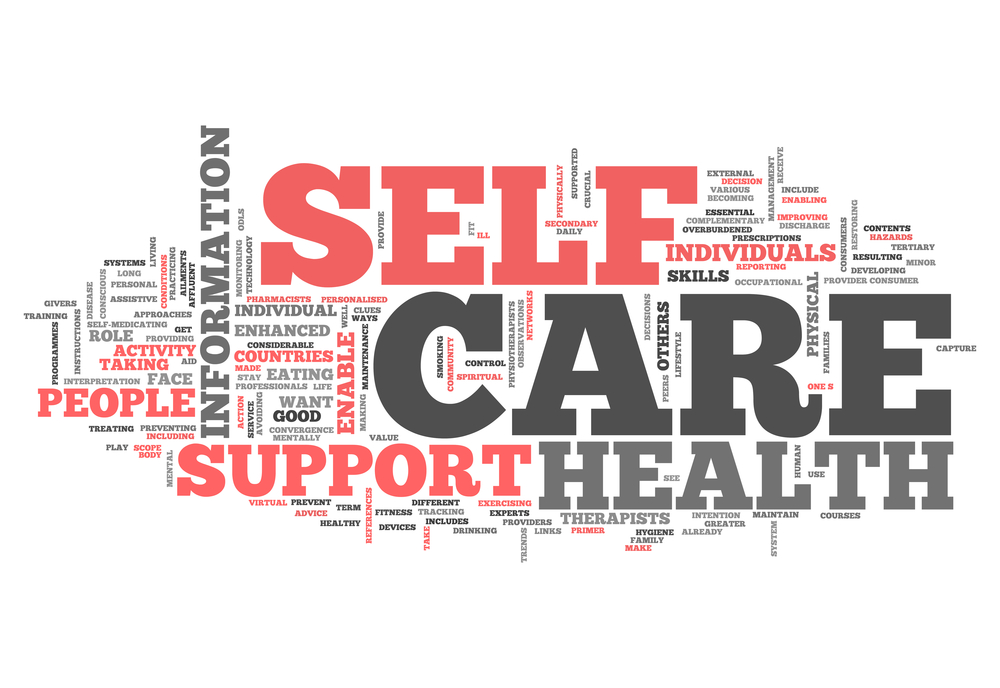Huntington’s Caregivers Also Must Be Mindful of Their Own Well-being

Many occupations are described as being the most difficult job in the world: Firefighting, mining, roofing in a heatwave. Yes, those examples are full of their own risks and challenges, but they are trumped by the roles we take in life that aren’t “jobs” at all. Parenting is an example, as is the focus of this column: caregiving.
What is caregiving?
A caregiver, according to Merriam-Webster, is a person who “provides direct care” for children, the elderly, or the chronically ill. When we think of providing care to someone, often what comes to mind is helping with bathing or other daily living activities. But there is so much more to it, especially when Huntington’s disease (HD) is in the picture.
Caregiving can, of course, include personal care activities, but it also often consists of tasks such as shopping, laundry, housecleaning, feeding, transportation, and much more. The list can be endless, and it can be easy for a caregiver to forget about looking after themselves, which undoubtedly leads to caregiver burnout.
Huntington’s disease unique struggles
It’s generally understood that Huntington’s disease commonly presents in a triad of movement, cognitive, and behavioral symptoms. Each symptom presents its own struggles, both for the individual and the caregiver. It’s often a combination of issues that can burn out a caregiver quickly.
A great deal of literature is out there for caregivers to access for tips on how to manage the well-being of their HD symptomatic loved one, but it can be so difficult to cope with outbursts of anger or responsive behavior. It can be easy for someone removed from the household to give a Huntington’s disease caregiver advice on how to deal with issues as they arise. They might say something like the following:
- Just allow him to be as independent as possible.
- When you see her getting fixated on something, you better jump in there and straighten it out.
- All you need to do is stick to a routine and you’ll be fine.
- Triggers, it’s all about triggers. What sets him off?
With Huntington’s disease, these examples are actually quite useful suggestions, but if the caregiver is not addressing their own well-being, the tips may fall on deaf ears.
The caregiver’s toolbox
Social worker Dorothy Orr published an action plan of strategies to assist a caregiver to cope with their role. The entire list is located at the previous link, but I’ve listed a few below to consider.
- Learn about Huntington’s disease. Increasing knowledge about the condition can help to lessen the blow from new effects of the disease as they present themselves.
- Ask for help. There is a great deal of support out there for the Huntington’s disease caregiver. Whether it’s local support groups, social media, or a counselor, understand that you are not alone in the battle and support is there.
- Maintain your own well-being. Be healthy. Look after your mental health and do not judge yourself for perceived imperfection.
- Acknowledge your grief. Huntington’s disease changes lives and takes away so much of the person we love. Grief can display itself in different ways for different people, but again, you are not alone.
- And this, quoted directly from Orr’s action plan: “Accept yourself for being human; even if you ‘lose it’ sometimes, give yourself a pat on the back for doing the best you can.”
***
Note: Huntington’s Disease News is strictly a news and information website about the disease. It does not provide medical advice, diagnosis, or treatment. This content is not intended to be a substitute for professional medical advice, diagnosis, or treatment. Always seek the advice of your physician or other qualified health provider with any questions you may have regarding a medical condition. Never disregard professional medical advice or delay in seeking it because of something you have read on this website. The opinions expressed in this column are not those of Huntington’s Disease News, or its parent company, Bionews Services, and are intended to spark discussion about issues pertaining to Huntington’s disease.







Leave a comment
Fill in the required fields to post. Your email address will not be published.